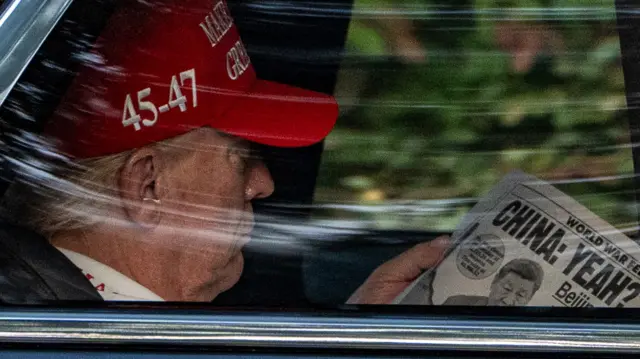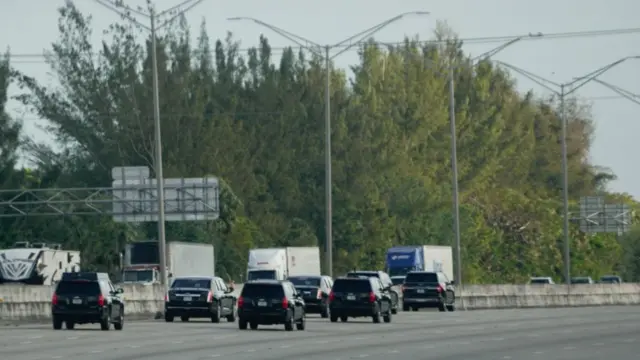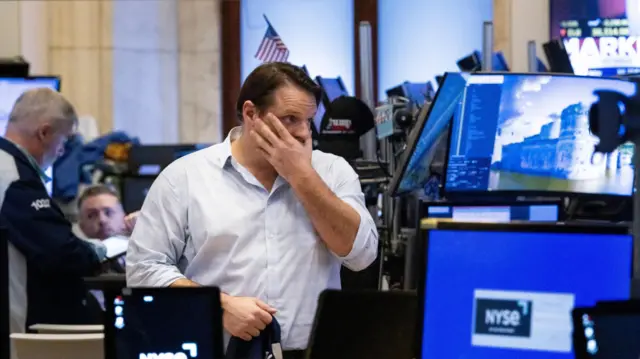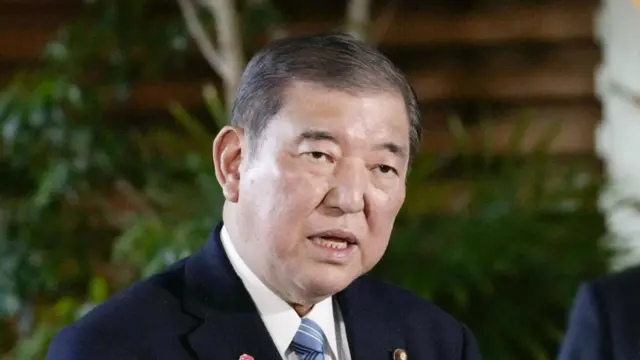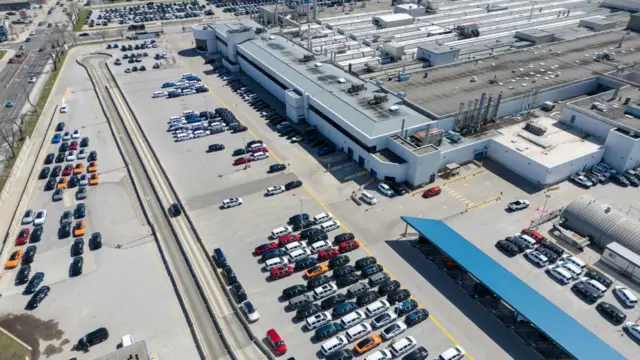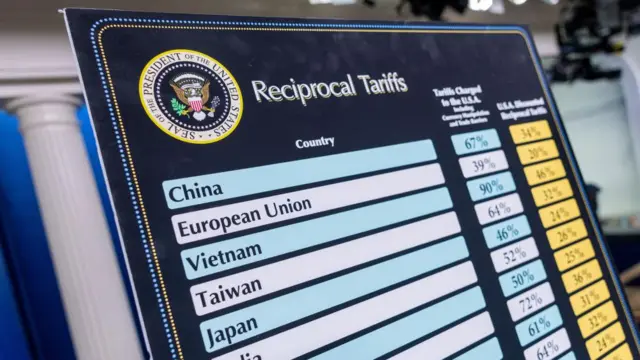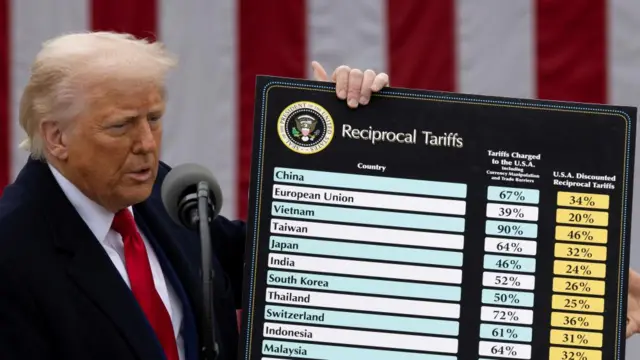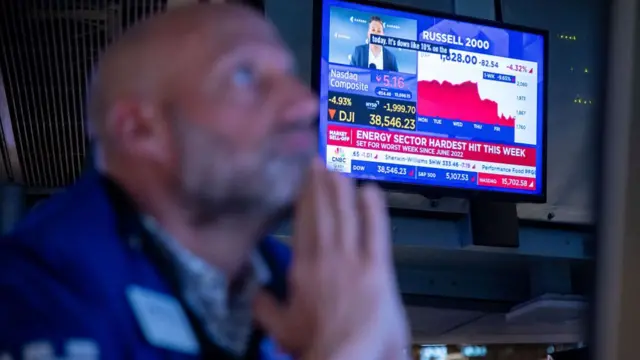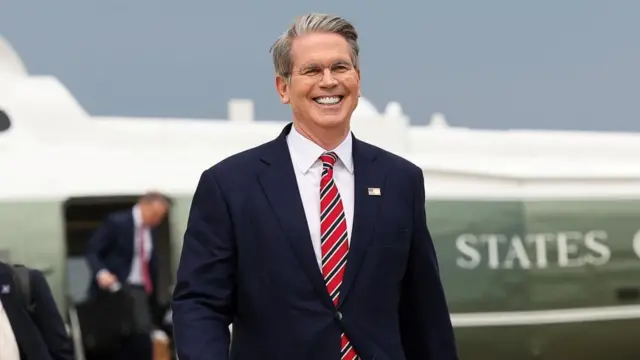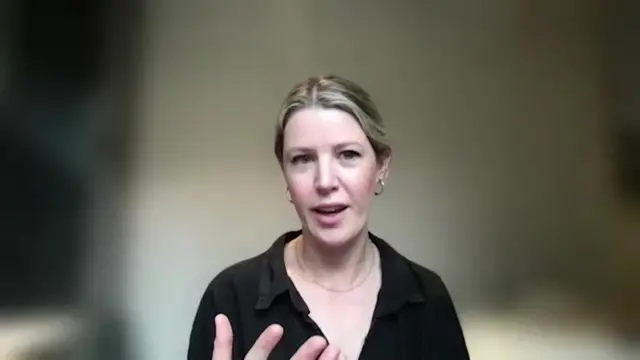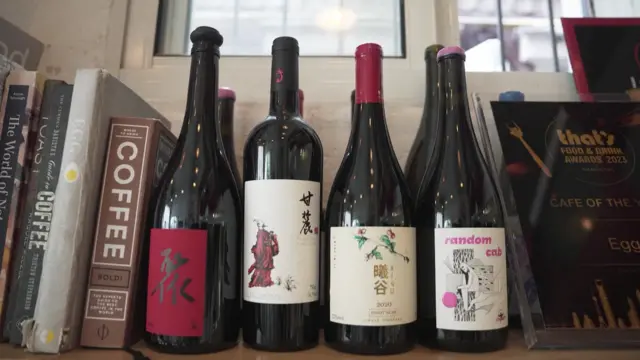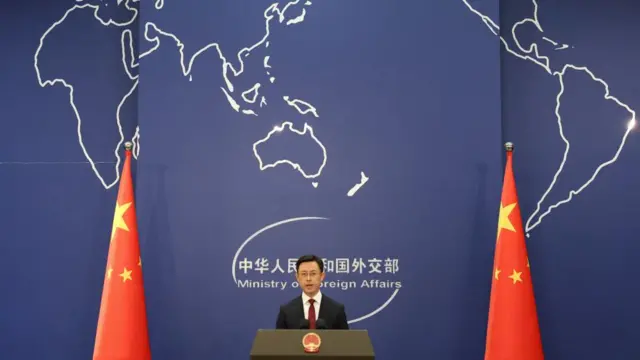In pictures: Anti-Trump protests take place across the globepublished at 16:43 BST 5 April
Meanwhile, there have been a number of anti-Trump demonstrations taking place across Europe and the US.
From Berlin to London, protesters have hit out against the US president and billionaire Trump adviser, Elon Musk, calling for an "end to the chaos" and expressing support for Ukraine.
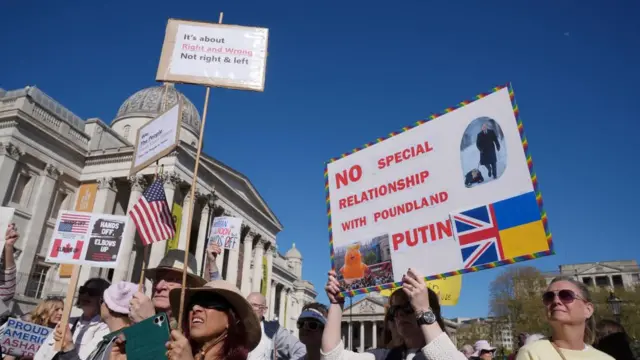 Image source, PA Media
Image source, PA MediaProtesters in London's Trafalgar Square compared the US president to his Russian counterpart
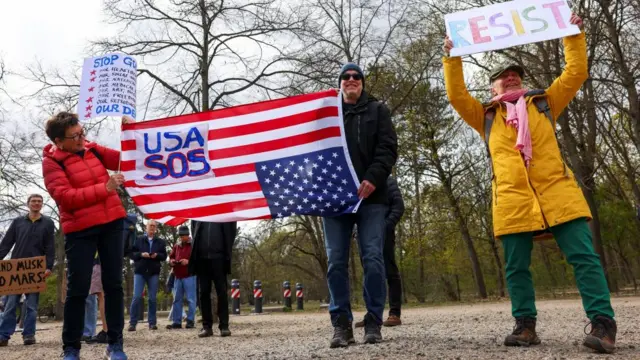 Image source, Reuters
Image source, ReutersDemonstrators took to the streets in Berlin calling for an "end to the chaos"
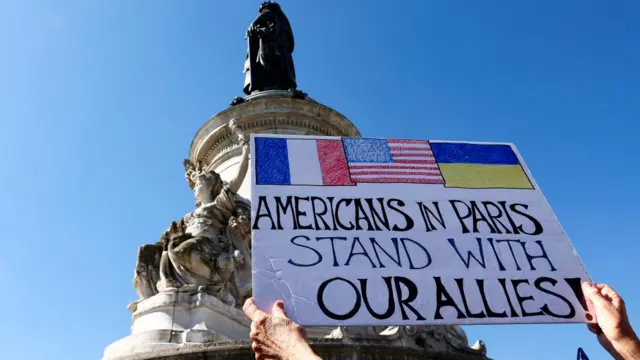 Image source, Reuters
Image source, ReutersElsewhere, anti-Trump protesters in Paris expressed their support for Ukraine
